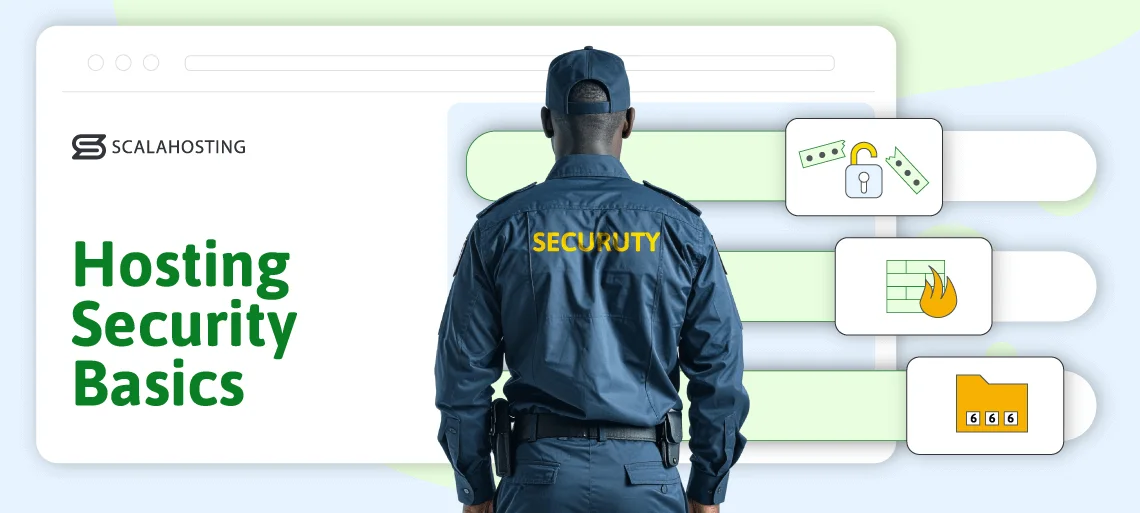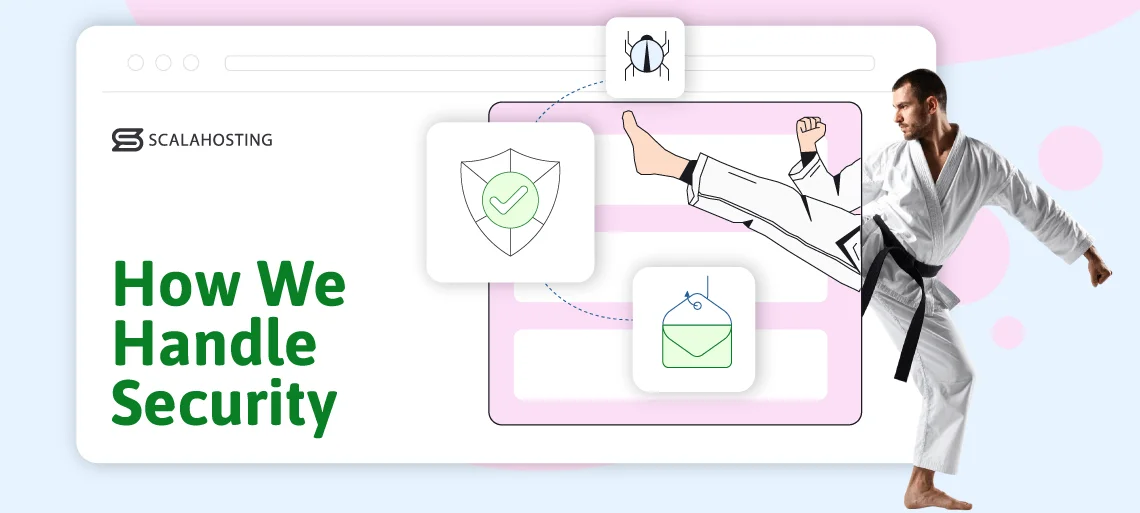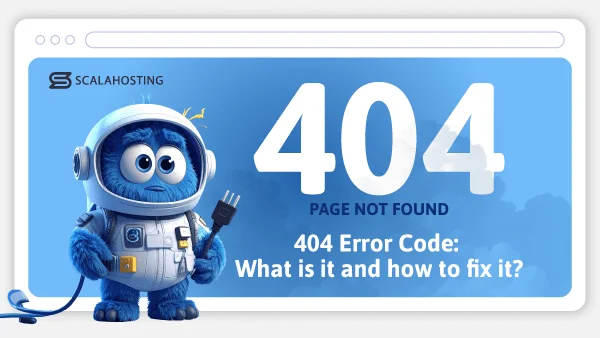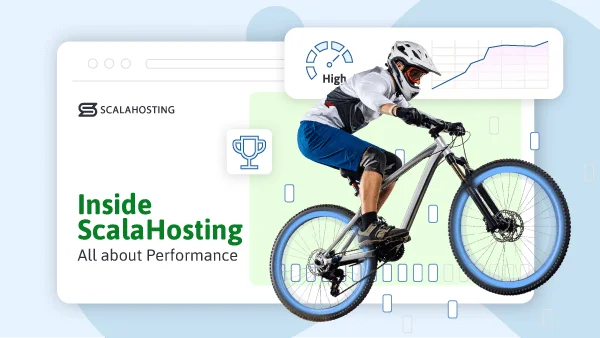Most web hosts treat security as a checkbox. We treat it as our mission. That fundamental difference is why your website is safer with ScalaHosting. While others offer basic, reactive tools, we built a proactive security shield designed to stop threats before they ever reach your site.
Enter ScalaHosting.
One of our prime goals is to redefine what secure web hosting should look like. We do this through proactive and innovative tools like SShield (a real-time cybersecurity system) and WordPress Manager, which simplifies and secures WordPress site management.
ScalaHosting goes beyond the basics. Add in free automated backups, email monitoring, and a firm commitment to data safety, and it’s clear: this is security done right.
In this article, we go behind the scenes to explore how Scala is setting new standards for protecting your digital presence.
Your business is too important for 'good enough' security. Our managed cloud platform is architected for performance and defense from the core. Stop reacting to threats and start building your future.
Hosting Security Basics: The Must-Have Features for Peace of Mind

According to recent cybersecurity reports, over 600 million web attacks occur daily, ranging from harmless vulnerabilities to critical breaches that cost millions of dollars to affected businesses. Phishing and ransomware attacks are on the rise, and a shocking number of them still prove successful.
As a website owner, you definitely want to avoid becoming part of those statistics.
But how can you improve the odds against so many highly-skilled hackers?
Naturally, your own efforts are essential here. But your hosting provider also plays a vital role in protecting your business.
The industry broadly implements these core protections:
- Firewalls: Providers block common attack vectors (SQL injection, XSS), usually via ModSecurity.
- Brute-force Protection: Rate limiting and traffic filtering. Hosts basically restrict the number of requests an IP can execute within a specific time frame.
- SSL Certificates: HTTPS via Let’s Encrypt free certificates or premium options for data encryption.
- Regular Updates: OS and server stack updates to patch known vulnerabilities. Some providers assist with app updates, but rarely do them automatically.
- File Permission Management: Setting proper read/write rules for files and directories is crucial. Without the right access permissions, any unauthorized user can modify files, execute injections, leave backdoors, and much more.
- Daily Backups: Essential for fast recovery. Keep in mind that even though many providers may offer backups, very few offer the restore service for free.
- Two-factor Authentication for Admin Panels: Adding another layer of login protection.
Cybersecurity Reality Check: Where Many Hosts Fall Short
Many providers claim to offer the basic features, but how well they’re configured, automated, or enforced varies widely.
It’s not uncommon to stumble upon:
- Poor Default Configurations
- Some shared hosting plans leave WordPress directories writable by default.
- Admin panels (like cPanel) lack out-of-the-box WordPress hardening.
- Inconsistent Malware Protection
- Malware scanning is often only manual or paid, leaving users vulnerable to silent infections. Few hosts offer free malware protection.
- The same goes for malware cleanup – most providers leave this issue solely to the client.
- No Application-Level Locking
- Even if the server is secure, WordPress files can be altered if login credentials are stolen.
- Most hosts don’t offer a mechanism to “lock” files against modification.
- No Two-Factor Authentication Enforcement
- Many rely on users to install plugins for login protection instead of offering enforced 2FA on their control panel or WordPress dashboard.
- Plugin Overload
- Hosts offload security to third-party plugins, which:
- Can be vulnerable themselves.
- Require manual setup and monitoring.
- May conflict with themes or other add-ons.
- Put additional strain on the server and drop performance.
- Paid or Insufficient Backups
- Some only offer weekly or on-demand backups.
- Backups are often stored on the same server as the live website (risking total data loss).
- Backup restores are rarely a free feature.
Keeping the online premises safe and secure might be a shared responsibility between client and host, but if the latter doesn’t go above and beyond to protect the foundations, the user will have a much harder time protecting what they create on top.
The ScalaHosting Way: How We Handle Security

Going the extra mile to keep cybercriminals away from the customer should be a given. We certainly believe so at ScalaHosting. This is why our R&D Team constantly look for ways to improve our servers and client accounts, even when it looks like we’ve covered all ends.
Here are some of the precautions that make our hosting plans sturdy as a medieval fortress:
- SShield (Real-time Malware & Threat Detection)
One of the unique ScalaHosting offerings, SShield, was developed in-house using advanced AI and machine learning algorithms. Our security monitor recognizes and blocks 99.998% of known web threats, actively learning from the traffic it analyzes. It also monitors suspicious post requests to the most targeted files. Once it detects a vulnerability, SShield sends alerts with the exact files that might be infected, as well as possible retaliation actions.
- WordPress Manager + WP Lock
Another tool that is native to the ScalaHosting environment. WordPress manager simplifies essential operations within the popular CMS, like one-click installations, password resets, staging & cloning area creation, and more. What’s unique about it in terms of web hosting security, is the WP Lock function. When turned on, no user can modify any of the WordPress files, effectively blocking any chances of implementing malware or backdoors. It’s like a file system Fort Knox, putting a security wall that normally requires advanced plugins and extra tweaks. We do it with a push of a button.
- Additional Protection Mechanisms
- Free solutions for every client – ModSecurity-based WAF, ConfigServer Firewall (CSF), ClamAV, SpamAssassin, automated IP blocking, and 2FA are just some of our defences against brute-force attacks, malware, spam, and account breaches.
- Free daily offsite backups – create manual or automated data backups with a single click. Archives are kept on an offsite server for extra redundancy and can be restored from multiple restore points.
- Special mail monitoring tools to avoid mailbox compromises – elaborate system that monitors mail queues, preventing unsolicited mail from going out from the server.
Security Feature Comparison: ScalaHosting vs Typical Hosts
| Security Feature | ScalaHosting (SPanel + WP Lock) | Typical Hosts |
|---|---|---|
| Real-Time Malware Blocking | ✅ Built-in via SShield | ❌ Plugin-required |
| WP File Lock | ✅ WP Lock Available | ❌ Manual Setup |
| 2FA Enforcement | ✅ Available Via SPanel | ❌ Not Enforced |
| WAF (ModSecurity) | ✅ Pre-configured & Tuned | ✅ / Variable Config |
| Staging & Cloning | ✅ One-click via WordPress Manager | ❌ Plugin-dependent |
| Auto Backups (Offsite) | ✅ Daily + Offsite | ❌ Limited or Paid |
| Compliance-Ready (HIPAA, PCI) | ✅ Certified | ❌ Rarely |
Final Takes
Online threats evolve faster than many hosting providers can adapt, and security can no longer be treated as an afterthought — it must be built into every layer of your online presence. While too many competitors still rely on outdated safeguards or one-size-fits-all solutions, ScalaHosting takes a fundamentally different path. By combining proactive threat monitoring, advanced isolation technologies, and a relentless focus on innovation, we’ve created an environment where websites, data, and businesses can thrive without compromise. Security done right isn’t just about preventing attacks; it’s about earning trust.


